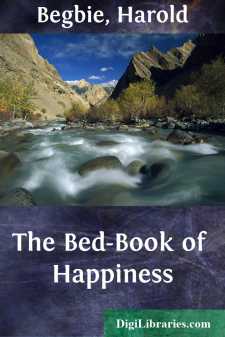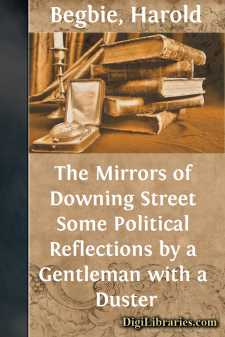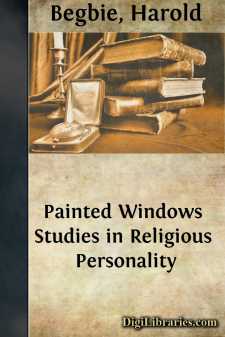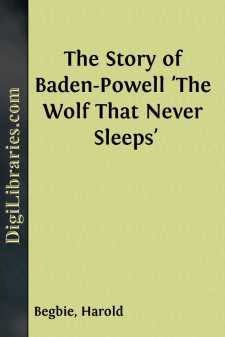Categories
- Antiques & Collectibles 13
- Architecture 36
- Art 48
- Bibles 22
- Biography & Autobiography 813
- Body, Mind & Spirit 142
- Business & Economics 28
- Children's Books 15
- Children's Fiction 12
- Computers 4
- Cooking 94
- Crafts & Hobbies 4
- Drama 346
- Education 46
- Family & Relationships 57
- Fiction 11828
- Games 19
- Gardening 17
- Health & Fitness 34
- History 1377
- House & Home 1
- Humor 147
- Juvenile Fiction 1873
- Juvenile Nonfiction 202
- Language Arts & Disciplines 88
- Law 16
- Literary Collections 686
- Literary Criticism 179
- Mathematics 13
- Medical 41
- Music 40
- Nature 179
- Non-Classifiable 1768
- Performing Arts 7
- Periodicals 1453
- Philosophy 64
- Photography 2
- Poetry 896
- Political Science 203
- Psychology 42
- Reference 154
- Religion 513
- Science 126
- Self-Help 84
- Social Science 81
- Sports & Recreation 34
- Study Aids 3
- Technology & Engineering 59
- Transportation 23
- Travel 463
- True Crime 29
Harold Begbie
Harold Begbie (1871–1929) was a British journalist, novelist, and poet known for his prolific writing in various genres, including fiction, biography, and social commentary. He was associated with the Edwardian era's moral and religious movements, often focusing on issues like poverty, alcoholism, and social reform. Among his well-known works are "Broken Earthenware," which addresses the struggles of London's poor, and "The Lady Next Door," a novel exploring human character and relationships. Begbie was also involved in Christian evangelism and contributed to the "Billy Sunday" movement in the early 20th century.
Author's Books:
Sort by:
by:
Harold Begbie
THE BED-BOOK OF HAPPINESS THEISSE[Sidenote: Richter] In his seventy-second year his face is a thanksgiving for his former life, and a love-letter to all mankind. RICHTER[Sidenote: Carlyle] We have heard that he was a man universally loved, as well as honoured … a friendly, true, and high-minded man; copious in speech, which was full of grave, genuine humour; contented with simple people and simple...
more...
by:
Harold Begbie
INTRODUCTION Let me say that I hope I have not betrayed any confidences in these sketches. Public men must expect criticism, and no criticism is so good for them, and therefore for the State, as criticism of character; but their position is difficult, and they may justly complain when those to whom they have spoken in the candour of private conversation make use of such confidences for a public...
more...
by:
Harold Begbie
INTRODUCTION By means of a study in religious personality, I seek in these pages to discover a reason for the present rather ignoble situation of the Church in the affections of men. My purpose is to examine the mind of modern Christianity, the only religion of the world with which the world can never be done, because it has the lasting quality of growth, and to see whether in the condition of that...
more...
by:
Harold Begbie
CHAPTER I You will be the first to grant me, honoured sir, that after earnestness of purpose, that is to say "keenness," there is no quality of the mind so essential to the even-balance as humour. The schoolmaster without this humanising virtue never yet won your love and admiration, and to miss your affection and loyalty is to lose one of life's chiefest delights. You are as quick to...
more...





